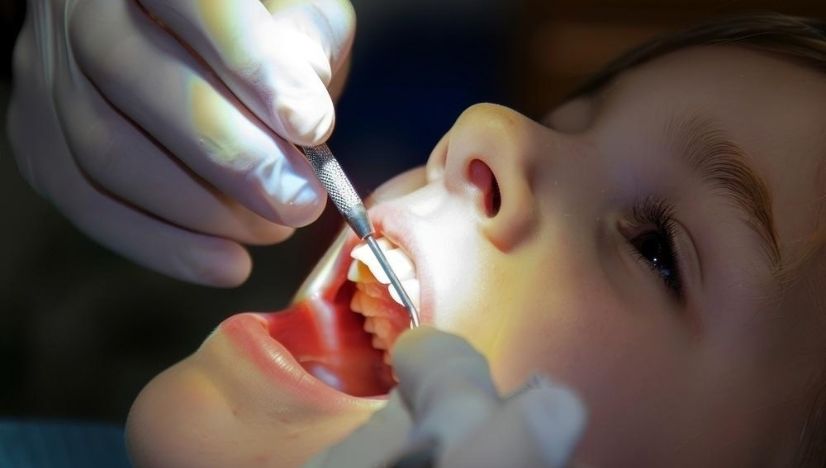Preventing Cavities: Tips from a Children’s Dentist in Eldersburg

Cavities are a common dental issue that many children face, but they’re also preventable with the right habits. If you want to protect your little ones’ smiles and keep their teeth healthy, it’s important to focus on daily dental care. In this blog, we’ll share helpful tips to prevent cavities from a trusted children’s dentist. With these simple strategies, you can ensure your child’s teeth stay strong and cavity-free for years to come.
Tips To Prevent Cavities In Children
Establish a Good Brushing Routine
Brushing is the most effective way to remove plaque, which leads to cavities. Kids should brush their teeth at least twice a day, in the morning and before bed. Be sure to:
- Use fluoride toothpaste to strengthen teeth.
- Help your child brush for two minutes, ensuring they reach all areas of their mouth.
- Brush their teeth after meals, especially sugary snacks.
Consider setting a timer or playing a fun song to make brushing more enjoyable.
Floss Every Day
Flossing isn’t just for adults! It’s essential for kids to floss daily to remove food particles and plaque between their teeth. This helps prevent cavities from forming in areas that a toothbrush can’t reach. Tips to make flossing easier include:
- Use a child-friendly floss pick for smaller hands.
- Encourage your child to floss after meals or at least once a day.
- Making it part of their bedtime routine and making it a habit.
Limit Sugary Foods and Drinks
Sugar feeds the bacteria that cause tooth decay, making it crucial to limit your child’s sugar intake. Tips to prevent cavities involve cutting back on sugary snacks, drinks, and desserts. Try these:
- Replace sugary drinks with water or milk.
- Encourage snacks like fruit, vegetables, or cheese instead of candy.
- Avoid sticky foods like fruit snacks that can linger on teeth.
When your child does consume sugary foods, make sure they brush their teeth afterward.
Visit the Dentist Regularly
Regular visits to a children’s dentist in Eldersburg, MD, are crucial for keeping your child’s teeth healthy. These visits provide a chance for early detection of any dental issues, including cavities. Here’s what to expect:
- Schedule check-ups every six months.
- Your dentist may recommend fluoride treatments to protect your child’s teeth from cavities.
- Early exams can spot problems before they become serious.
Regular check-ups help keep cavities at bay and provide an opportunity for your child to get comfortable with dental visits.
Drink Plenty of Water
Drinking water is not only good for hydration, but it also helps wash away food particles and bacteria from the mouth. Encourage your child to drink water throughout the day, especially after meals, to keep their teeth clean. Water also helps promote saliva production, which naturally protects against cavities by neutralizing acids in the mouth.
Use Dental Sealants
Dental sealants are thin protective coatings applied to the chewing surfaces of back teeth. These teeth are often hard to clean, which makes them prone to cavities. Sealants can reduce the risk of tooth decay by protecting these vulnerable areas. Ask your dentist if sealants are appropriate for your child’s teeth.
Avoid Sharing Eating Utensils
While sharing is caring, it’s not a good idea when it comes to eating utensils. Sharing spoons or cups with your child can pass bacteria from one mouth to another, increasing the risk of cavities. Encourage your child to eat their own food with their utensils, and avoid sharing cups or utensils during meals.
Teach Proper Tongue and Mouth Habits
Sometimes, habits like thumb-sucking or mouth-breathing can contribute to dental issues. Thumb-sucking can affect the alignment of teeth, while mouth breathing can dry out the mouth and increase the risk of tooth decay. Help your child break these habits early on to promote healthy dental development.
Protect Teeth During Sports
If your child plays sports, wearing a mouthguard can help protect their teeth from injury. Accidents can happen, and a mouthguard will help prevent cracked or chipped teeth, as well as protect against cavities caused by trauma. Make sure your child wears a properly fitted mouthguard during games and practice.
Provide Nutritious Snacks
A balanced diet plays a big role in oral health. Foods rich in calcium, vitamin D, and phosphorus help strengthen teeth and bones. Incorporate these nutrient-rich snacks into your child’s diet:
- Cheese
- Yogurt
- Leafy greens
- Nuts
These snacks help fortify your child’s teeth and protect them from cavities.
Encourage Healthy Habits Early
The earlier you start teaching your child good oral care habits, the more likely they are to continue them as they grow. By making dental care a fun and regular part of their daily routine, your child will understand the importance of tips to prevent cavities and learn to care for their teeth independently.
By following these simple tips, you can help your child maintain a cavity-free smile. Regular brushing, flossing, and visits to a children’s dentist will protect your child’s teeth from decay and ensure they enjoy healthy, happy smiles for years. Don’t wait—start these habits early and watch your child’s dental health thrive!


